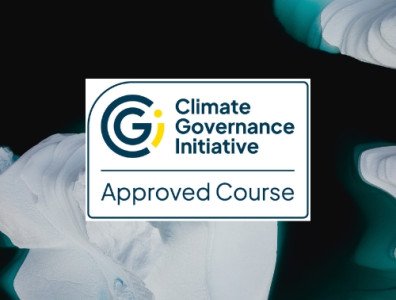Quantification in the boardroom: Navigating climate risks and opportunities
Overview
Navigating the quantitative considerations around climate-related risks and opportunities are emerging as one of the most important aspects of modern governance. Far from being just a compliance exercise, these are central to a board’s role in overseeing risk, allocating capital, and ensuring the organisation’s long-term resilience. They provide decision-useful insights into how climate change could affect an organisation’s financial position, performance, and cash flows, not in some distant future, but often with real and immediate implications.
Disclosure of anticipated financial impacts (AFIs) of climate-related risks and opportunities is a relatively new concept for many entities. However for directors, the challenge lies in moving beyond disclosure checklists to use information about AFIs as a core tool for strategic decision-making. This means understanding how to frame productive internal conversations, integrating AFI insights with climate scenario analysis, and weighing the trade-offs between short-term pressures and long-term positioning. It is about asking whether the organisation’s response to climate risk is proportionate to its potential financial impacts — and whether capital is being deployed in ways that both protect against downside risks and unlock transition opportunities.
In this Chapter Zero New Zealand webinar, Dr Amelia Sharman (External Reporting Board), Hannah Hamling (Mercury NZ) and Jenika Phipps (Financial Markets Authority) will bring complementary perspectives from regulation, modelling, assurance, and governance practice. They will discuss:
- How the climate-related quantitative considerations, including AFIs fit into the wider governance and risk management framework
- Practical ways to approach uncertainty and materiality without delaying action
- Why AFIs matter for capital allocation, investor confidence, and long-term value creation
- How to integrate AFIs with other financial information to inform boardroom discussions about strategic priorities and trade-offs
- The role of AFIs in identifying organisational vulnerabilities and building resilience
This session is for directors who want to position AFIs at the centre of boardroom thinking — regardless of whether they have reporting obligations, to strengthen resilience, guide strategy, and navigate the transition to a low-emissions, climate-resilient economy.
Speakers
Dr Amelia Sharman

Dr Amelia Sharman is Director Sustainability Reporting at the External Reporting Board (XRB), responsible for managing the execution and coordination of the climate-related disclosure framework for Aotearoa New Zealand, as well as the XRB’s wider sustainability reporting work programme. Dr Sharman has an extensive background in climate and sustainability policy areas, having held a range of project and policy roles across the public and private sectors in New Zealand and the United Kingdom. She has a PhD from the London School of Economics, an MSc from the University of Oxford, and an MA(Hons) from the University of Auckland.
Hannah Hamling

Hannah is on the board of Mercury NZ and chairs the Safety and Enterprise Risk Committee of the Board. Prior to board work Hannah has over 30 years’ experience in the environmental and engineering industry. She was appointed on the global board of Golder in 2009 while also managing the New Zealand operation. In 2014 she was appointed President of the Asia Pacific Region for Golder, managing New Zealand, Australia and five countries in Asia, and was a member of the global executive committee. In addition to being President of Asia Pacific she was Global Sustainable Development Leader, reporting under the UNGC. Hannah is also a former board member of a Morgan Stanley Company.
Jenika Phipps

Jenika set up and leads the FMA team responsible for the independent monitoring and enforcement of the NZ Climate related disclosure regime. She is a Chartered Accountant with a background in auditing and expertise in sustainable finance and climate related disclosures.
Judene Edgar CMInstD (Facilitator)

Judene is a Principal Governance Adviser with the Institute of Directors’ Governance Leadership Centre and Chapter Zero NZ lead providing research and best practice advice, guidance and advocacy for directors. She is also a trustee of the Rātā Foundation and Network Tasman Trust, and Chair of the Nelson Historic Theatre Trust.
Prior to joining the IoD she ran her own consultancy for over 20 years specialising in governance, policy, strategy and communications working across a wide range of sectors, including housing, health, solid waste, aviation, energy, not-for-profit and infrastructure.
She was a local government elected member for 12 years and a director on a range of private and public entity boards. She has a background in behavioural science and communications and is a Chartered Member of the IoD.
Additional information
Event cancellation policy
Regrettably, registration fees cannot be refunded when cancellations are received within two working days prior to any event. See our standard terms and conditions for more information.
Contact
Gemma Fellowes
Project & Events Executive
+64 9 365 2736
Gemma.Fellowes@iod.org.nz


